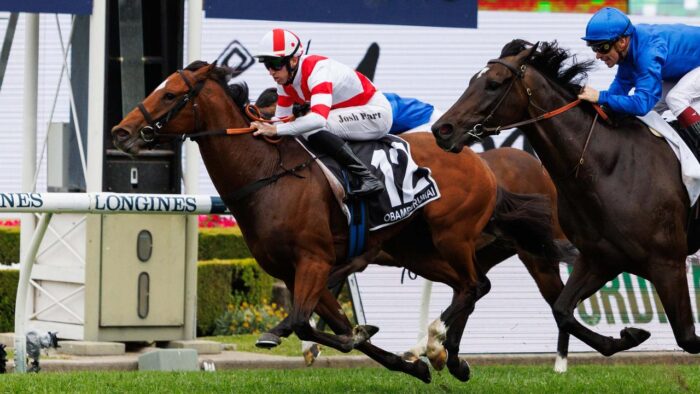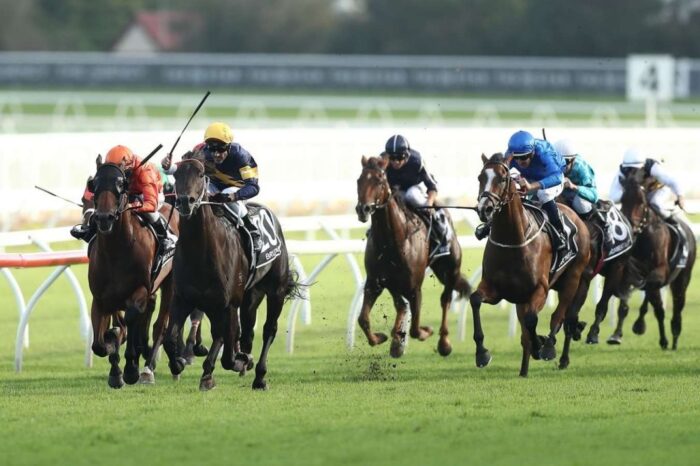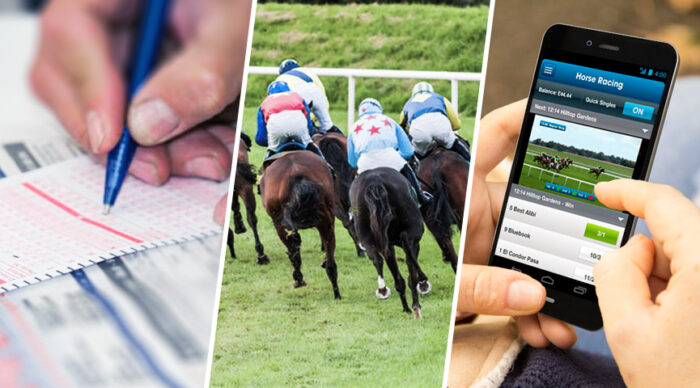The prestigious Doncaster Mile is the highlight event of the Australian racing calendar, capturing the public imagination like few other races. With the prize money totaling AUD$4 million (USD$2.6 million), the competition is getting stiffer.
Now, as seasoned punters weigh up high-profile contenders ahead of the Mile, more casual trackside observers may also be tempted to try their luck with a wager on the Group 1 feature. However, while Lady Luck may smile at some racegoers this Doncaster Day, entertainment and excitement should always come before expectations of profit at the betting window.
Responsible and informed wagering is key—a few dollars sacrificed in the name of fun should never turn into dire financial situations. With this wise ethos in mind, here are some key factors to weigh up as you consider getting involved in Doncaster Mile betting on the big race this year.
Study the Field and Likely Odds

Source: townsvillebulletin.com.au
While beginner’s luck occurs now and then in racing, building at least a basic understanding of key runners is wise. Doing your homework on horses’ recent results, connections, racing styles, and tendencies can help you make informed decisions if you choose to have a wager.
Online form guides are invaluable for this, providing details like barriers, winning distances, times, track conditions, and jockey records. While an in-depth review of years of past performances is unnecessary, gaining a good grasp of contenders’ current form and season preparations leading into the Doncaster is useful.
When reviewing the form, look beyond just recent wins and placings. Other factors like speed ratings, sectional times, and beaten margins also provide a good indication of the current form against quality opposition. Horses coming off dominant wins generally attract significant betting attention and shorten in price, so seek out improving types bringing strong trial form into their first run of the preparation.
Additionally, understanding horses, preferred racing patterns gives insight into whether they run to suit their signature sprint or staying prowess. The Doncaster Mile tends to favor those that can sustain a long sprint, so watch for horses likely to settle midfield or, worse, those that may struggle to reel in the leaders.
Consider Track Conditions and Draws
Barrier positions and track conditions can have a significant influence on horses’ chances. Hence, to have waging success, you must be able to read track conditions. An outside draw may make it difficult for a horse to find cover in the field, forcing it wide on the turn and lengthening its finishing run. A rain-affected track may also change the dynamics, favoring on-pacers or horses with versatility to adapt their racing pattern.
Leading hopes can be cruelled by tricky draws and ground conditions, so remain alert to such factors, which may erode or strengthen certain horses’ chances. While the adage to ‘never back against the bias’ has merit, upsetting results still occur.
For horses that like to lead, inside barriers can allow them to use their early gate speed without wasting crucial energy. Meanwhile, backmarkers drawn wide have little choice but to settle well back and hope the pace is genuine, allowing them to make their sweeping run home.
Seek Each-way Value Where Available

Source: punters.com.au
When assessing likely market moves, goalposts can shift quickly with well-backed runners shortening drastically come race time. The impact of big betting plunges was evident when Hartnell—who started as a hot favorite—finished out of the placings in his Mile attempt and was outshined by Mr. Brightside, which finished with USD$6.80 betting odds.
If investing in the Doncaster market, each-way betting can be a savior—scoring your returns even if your selection just scrapes into a minor placing. With early fixed odds markets generally offering a quarter odd for the first three, a horse drifting from, say, USD$15 into USD$26 come jump time means you’ll get far greater value for running third.
Each-way bets increase your chances of securing some return. If allocating USD$20 outlay, consider splitting your budget with USD$10 on the nose and USD$10 each way rather than USD$20 to win. This covers both scenarios—from saluting to filling a place.
Consider Exotic Bet Variety
If preferring to avoid the unpredictability of backing a single runner in the feature, exotic bets open up alternatives with horses required to place but not necessarily win. These are also more accessible to bettors who want to invest less money.
One example of an exotic bet type is flexi betting. Here, a bettor can choose to bet 25% of the full wager amount. Flexi betting enables bettors to stake a portion of the total dividend (payout amount) proportional to how much money they’re willing to risk. It provides flexibility and expands exotic betting options to punters who might otherwise not be able to afford the full wager quantities.
Successful punters also target big windfalls via first 4s, trifectas, and quinellas, leveraging combinations to build multiple coverage. A budget-friendly boxed trifecta taking field/third line favorites offers just a one-in-216 shot by only outlaying roughly USD$30-$40. While odds can blow out if an unpredictable runner sneaks a place, cautious coverage controlling spend is key. If Lady Luck shines, transact wisely—maybe enjoy a nice dinner rather than turning everything over at huge odds!
The beauty of exotic betting is bringing multiple horses into play. Boxing your top four or five selections boosts your prospects. A US$1 trifecta box covering five horses for a USD$20 spend can return over USD$3000 for a successful result. Identify overlays running above their true chances—this type of flooding your exotics can generate big collects.
Stick to a Strategy

Source: xsreviews.co.uk
Of course, every punter aims to back winners, boasting how they ‘knew that horse would salute before the race.’ However, confirmation bias makes people overestimate their predictive capability—remembering the wins while forgetting multiple losses. Maintaining records, though, helps identify if you’re actually in front over time.
Rather than chasing your tail, decide on targets beforehand and stick diligently to them, e.g., stop after three bets or stop after doubling your money. Reassess what’s working rather than getting caught on the rollercoaster. Mastering restraint is the craft that separates pro punters from hopeful hobbyists.
A betting strategy imposes a disciplined approach, so have a plan and stick to it. Give yourself a budget to invest—putting aside entertainment money rather than key bills or rent funds. Set limits to not chasing previous losing bets and resist the urge to withdraw more cash if on a bad run during the day.
Gamble Responsibly
Most importantly of all, the magic of the Doncaster Mile is best enjoyed first and foremost as a spectacle, appreciating the majesty of equine athletes striving in their field of expertise. With alcohol flows encouraging irrational choices and bookies preying on impulsive bets, take a measured approach if you want to enhance excitement via a wager.
Remember to stay in control and bet small, remembering it’s only money—keeping a healthy detachment from results to simply appreciate the grandeur of the glorious Mile.
In closing
Now armed with these key tips, enjoy your Doncaster Mile experience, and hopefully, a little beginner’s luck throws you a windfall! Bet for entertainment rather than expectation of profit, establishing loss limits, and thinking twice before chasing previous outlays with panicked new bets.
Enjoy the atmosphere, catch up with friends, and immerse yourself in the thrill of the field pounding down the straight in chase of a famous Doncaster victory.

